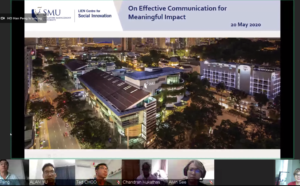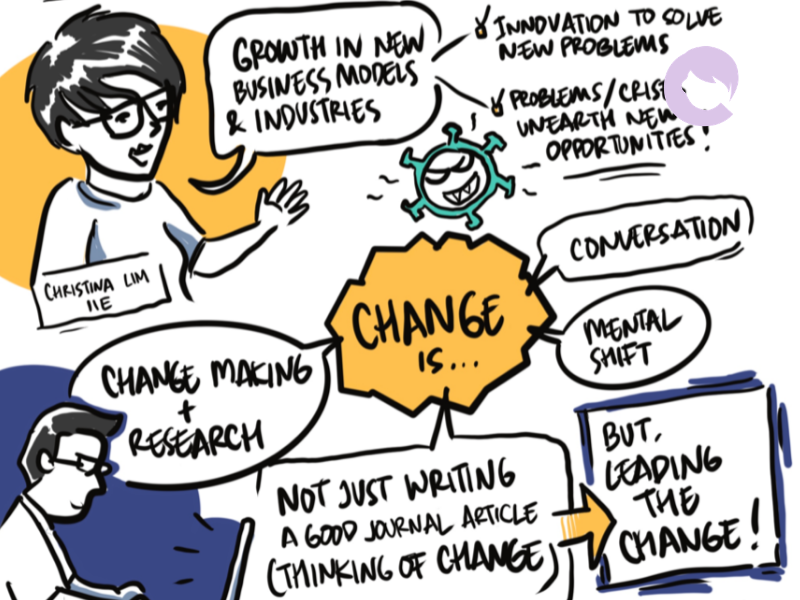Change is constant. To that, we often speak about the needs to adapt, change and transform. However, the tonality about change tends to be negative and it usually entails being passive to adapt, comply or just cope.
Many individuals and businesses find change intimidating. Fear of the unknown cripples and disruptions are uncomfortable.
“Changemaker Campus”
In May 2020, Lien Centre of Social Innovation (LCSI) organized a virtual conference.
 Previously, I had only heard of the philanthropic works by Lien Foundation. LCSI is a partnership between the Lien Foundation and Singapore Management University (SMU). It was established in 2006 to advance the thinking and capability of the social sector.
Previously, I had only heard of the philanthropic works by Lien Foundation. LCSI is a partnership between the Lien Foundation and Singapore Management University (SMU). It was established in 2006 to advance the thinking and capability of the social sector.
Ashoka is a global non-profit organization supporting leading social entrepreneurs worldwide. It recognizes universities and colleges globally that have embedded social innovation as a core value. In 2016, it accredited the Singapore Management University (SMU) as Asia’s first “Changemaker Campus”.
In order to keep the “Changemaker Campus” vision alive, the conference is part of a regular cadence that includes the entire SMU faculty.
Naturally, the panel was duly represented by SMU and LCSI. I joined the panel to inject the entrepreneurship and innovation perspectives.
Walking the Talk
Changemaking is at the heart of the start-up world where technological and business model innovations abound.
Over the last 12 months, I have been learning about business incubations with SMU Institute of Innovation & Entrepreneurship (IIE). SMU IIE’s works extend SMU’s DNA as changemaker as it nurtures change makers and founders who aspire to make the world a better place.
However, it is not enough to pay lip service on driving change, change-making has to be accessible. In fact, there should be opportunities and platforms for students to experiment and programs to guide them on how to create change. One example is the Global Innovation Immersion at overseas start-ups. Another example is the Protege Ventures, a student-run VC fund where students can learn to endorse and fund innovations.
Beyond Start-ups
We spoke about what changemaking means for different disciplines. For example, how can law graduates be changemakers? By driving policy changes?
This vision of “Changemaker campus” is noble but making it happen from top-down can be challenging. Perhaps, a ground-up approach is more desirable so that changes come through collective efforts. This means that Changemaking DNA needs to take root and be internalized.
In fact, we should strive to be the thought leader on the subject!
We believe the “Changemaking” requires these attributes:
- System thinking to lubricate collaborations – can we establish common narratives on change-making
- Inclusiveness – involve all parties in the conversations
- Diversity – demonstrate possibilities of change-makers at different fronts – business, legal, social, technological, etc.
- Practice of change-making – provide accessible and contextual experiences
The “Why” matters
Changemaking must carry a purpose. At the end of the day, we are being active towards the betterment of the world around us. And that calls for empathy, passion and resolution.
A nice wrap to the virtual conference was receiving artistic recording on my sharing (shown as the header image).
Something different for a change, I guess.


Recent Comments